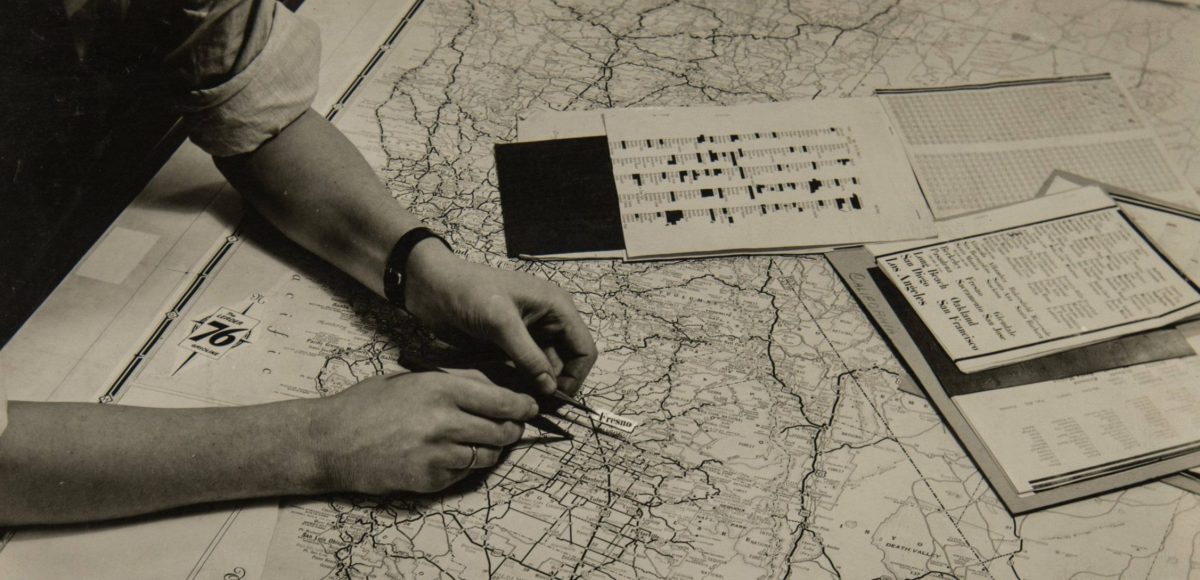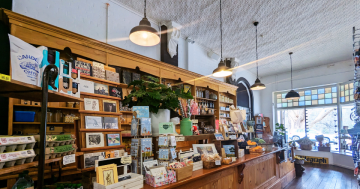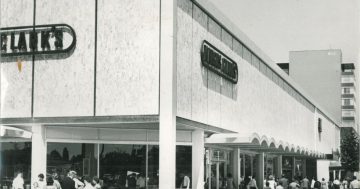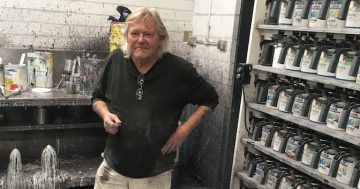
Paper maps of the world were once indispensable, and the shops that sold them a treasure trove. Photo: Wikipedia commons.
I recently had need of a map – a real map made of paper, that folds up. Like the old days.
It was very hard to find and eventually I got one from a friend who had an old map hidden away. But it made me remember the ‘Map World’ shop that used to be in the Jolimont Centre in Civic.
It was a great shop. There were topographical maps of all sorts of places right across the world and traditional maps of anywhere and everywhere. Now of course there is Google Earth and GPS.
The then owners of that shop told me how people would come and browse for hours as they imagined places they had never been and – in their minds – transformed topographical maps into 3D images. It was a great shop.
What else has changed in the world of little niche businesses? We often hear of the death of this business or that business but has that happened, the same as for map shops?
Bookshops were meant to be doomed but, so far, the small independent bookshops continue to flourish as enough people still like a proper book they can leave lying around and pick up again when they’re ready.
Parents like a good book they can read to the kids and that the younger kids can chew on and throw around as they see fit. The very large bookshops have gone as they could not match the personal touch of small shops.
Video shops have well and truly disappeared – our movies are all online now. None of the joy or disappointment of wandering through the endless shelves looking for something new and interesting to amuse oneself at home.
Music stores – or record stores as we sometimes called them – have pretty much disappeared. But in the day, there would be mega stores like Virgin Records or our own Impact Records here in Canberra, selling millions of albums and some EPs and singles.
We would browse for hours and put on the headphones or go into a sound-proof booth to listen to the latest hits and back-listed music. Now all gone, as Spotify and online sources take that space. Although we have seen a resurgence in the use of vinyl, mainly by hipsters.
We also see service stations have changed, where once they were in most suburbs and owned by a motor mechanic who sold petrol and repaired and serviced people’s cars.
A lot of car owners in those days knew their mechanic and apprentices by first name, knew our cars like the backs of their greased hands and each vehicle’s odd quirks. Now servos are retail outlets with, sometimes, a mechanical business attached.
Remaining newsagents have changed dramatically. We used to be confronted by endless piles: the five or six major national papers, some local publications, various international papers such as the New York Times or the London Gazette. There were magazines for every interest, hobby and pastime.
The newsagent delivered thousands of papers each morning and householders would be quite unhappy if the paper didn’t arrive. Physical papers and magazines still exist but nowhere like back in the day.
All suburbs had a milkman (now we would say a milk-person?) who delivered thousands of bottles of milk to households, collecting empty bottles as they delivered full cream milk. Now disappeared.
We’ve also seen the demise of family-owned hardware stores. The monster hardware store has destroyed these smaller niche outlets. Such a shame, as locals would get to know the expert staff, who understood each customer’s projects and needs.
Of course, the ‘corner shop’ went away a long time ago. Someone told me they never had a chance in Canberra because we didn’t have many corners.
Which businesses still thrive? Butchers, bakers, cafes, restaurants, hairdressers, pharmacies, pubs and clubs, bicycle sales and repair shops, some specialist shops and outlets, clothing and footwear, local supermarkets.
They may not be around in the numbers they once were, but people still like to feel and see things they will wear or eat or drink. They like expert advice from professionals. Most people also like other people and enjoy company.
Shops and little businesses will always survive in one form or another, but they have to change to meet the times. Hasn’t it always been so?
Unless governments favour big businesses and big money? That’s a different issue – for next time.



















